Mapping the burden of cholera in sub-Saharan Africa
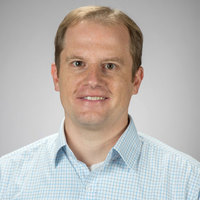
Sean Moore, a research assistant professor in the Department of Biological Sciences and the Eck Institute for Global Health, has coauthored a paper mapping the incidence of cholera in Africa, a critical step in the World Health Organization’s goal of reducing cholera deaths by 90 percent over the next decade. “Mapping the burden of cholera in sub-Saharan Africa and implications for control: an analysis of data across geographical scales” appeared in The Lancet on March 1, 2018. The mapping enables targeted application of cholera elimination strategies to high-incidence areas for most immediate and effective control. Reports often aggregate cases for a whole country and do not identify high-incidence areas within the country.
Research reveals a triple-drug regimen that could eliminate elephantiasis
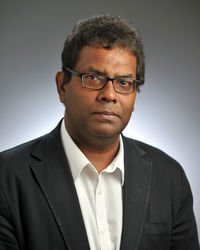
A collaborative modeling study among three research groups, including Edwin Michael’s laboratory in the Department of Biological Sciences, reveals that a triple-drug regimen could accelerate the elimination of lymphatic filariasis, a mosquito-borne parasitic disease also known as elephantiasis. The study, which shows that the regimen requires far fewer applications than current two-drug combinations, is also significant because it provides a unified scientific consensus on the subject for policymakers who sometimes face a confusing array of separate claims.
Researchers publish hypothesis to explain speciation in Rhagoletis flies
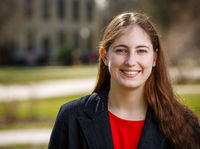
Research led by fifth-year graduate student Cheyenne Tait in the Biological Sciences laboratory of Jeffrey L. Feder at Notre Dame has identified structures on the antennae of Rhagoletis flies that could explain why the flies are on their way to diverging into two distinct species even though they are not geographically separated.
Researchers Confirm Molecule's Role in Kidney Formation

The discovery could help advance understanding to address issues such as birth defects and repair of the kidney after illness or injury.
Students share Galapagos Islands diversity with area children
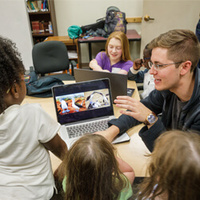
Days before their Fall Break trip to the Galapagos Islands as part of a course in the Department of Biological Sciences, 14 Notre Dame undergraduates introduced the Darwin-inspiring islands to youngsters at the Robinson Community Learning Center who will be “virtual explorers” with them through the adventure.
DoD grant funds pursuit of novel insecticides to fight Zika, other diseases

A collaboration among faculty in the Eck Institute for Global Health and the Warren Family Research Center for Drug Discovery and Development is investigating new ways to kill the mosquitoes that carry the Zika virus, dengue fever, and other dangerous diseases.
Bringing legendary science faculty to Notre Dame
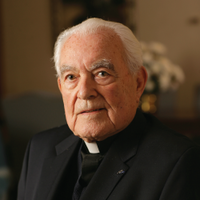
During the one year anniversary of the death of Fr. Hesburgh, the College of Science recalls and appreciates the impact that he had on science at Notre Dame. When former Notre Dame President Father John J. Cavanaugh challenged “Where are the Catholic Salks, Oppenheimers, and Einsteins?” in a widely-read essay in the late 1950s, Father Theodore Hesburgh was already in the process of providing an answer. In both direct action, from building facilities to recruiting top scholars, and cultural transformation, from welcoming women students to asserting academic freedom, Hesburgh laid the foundations for the College of Science’s accelerating research, discovery, and mission-driven entrepreneurship in the 21st century.
Fr. Hesburgh's impact on UNDERC
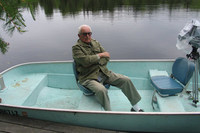
During the one year anniversary of the death of Fr. Hesburgh, the College of Science recalls and appreciates the impact that he had on science at Notre Dame. Notre Dame’s nearly 8,000-acre Land O’Lakes property in Wisconsin, originating with a 1,000-acre gift from philanthropist Martin J. Gillen in the 1930s and vastly expanded by Father Hesburgh, has been the site of high-impact gatherings hosted by Hesburgh. In 1959, a group of Northern and Southern political leaders who happened to be fishermen hammered out an agreement that became the basis of the Civil Rights Act; in 1967, a global collection of top educators issued the Land O’ Lakes Statement on Catholic higher education in America.
Environment of tumors impacts metastasis, study finds

If a tumor is like a seed, the soil around it plays a significant role in its growth, a new study finds. According to the study’s results, the microenvironment of a tumor cell has significant impact on cancer metastasis. This discovery by Siyuan Zhang at Notre Dame and a team at the University of Texas MD Anderson Cancer Center has focused attention on fighting cancer in the tumor cell’s microenvironment.
Biologist sees common ground in Pope Francis’s environmental stance

In a column published in the July 30 edition of Nature magazine, David M. Lodge, the Ludmilla F., Stephen J., and Robert T. Galla Professor of Biological Sciences, said that Pope Francis has opened common ground for science and religion, especially on environmental issues. Lodge, a Protestant who has worked for 30 years at Notre Dame, is an expert on freshwater ecology, invasive species, and environmental policy. He wrote that the Pope could “help to bridge the divide between science and the Protestant views that dominate the religious ‘anti-science’ movement.”